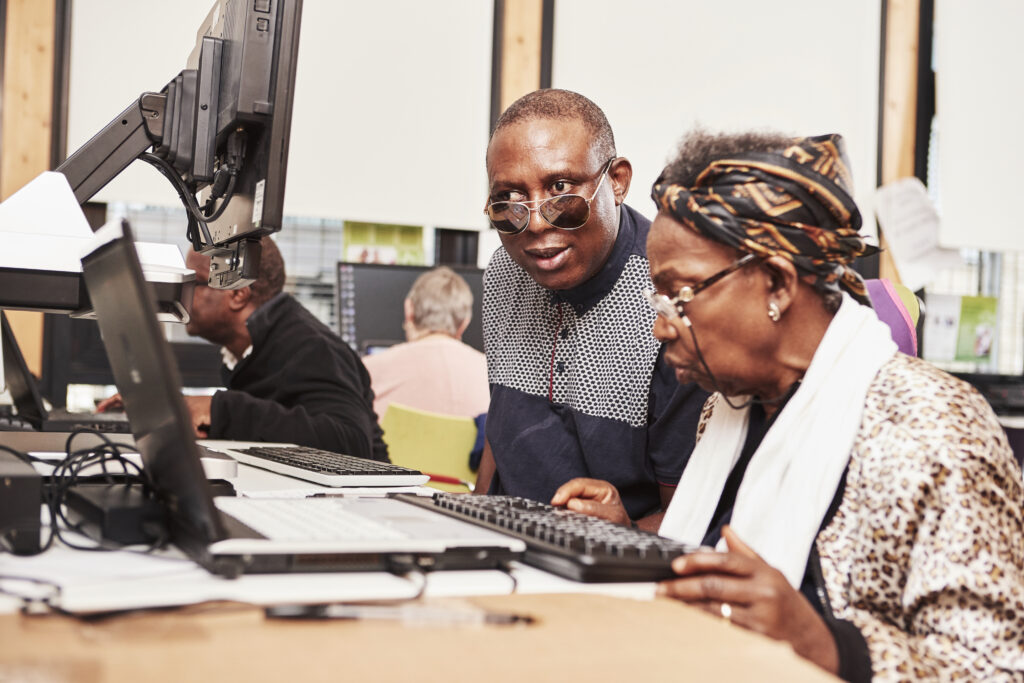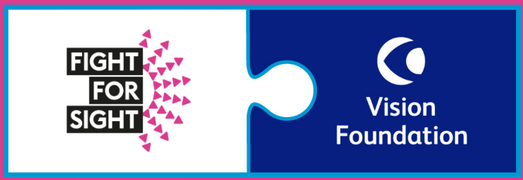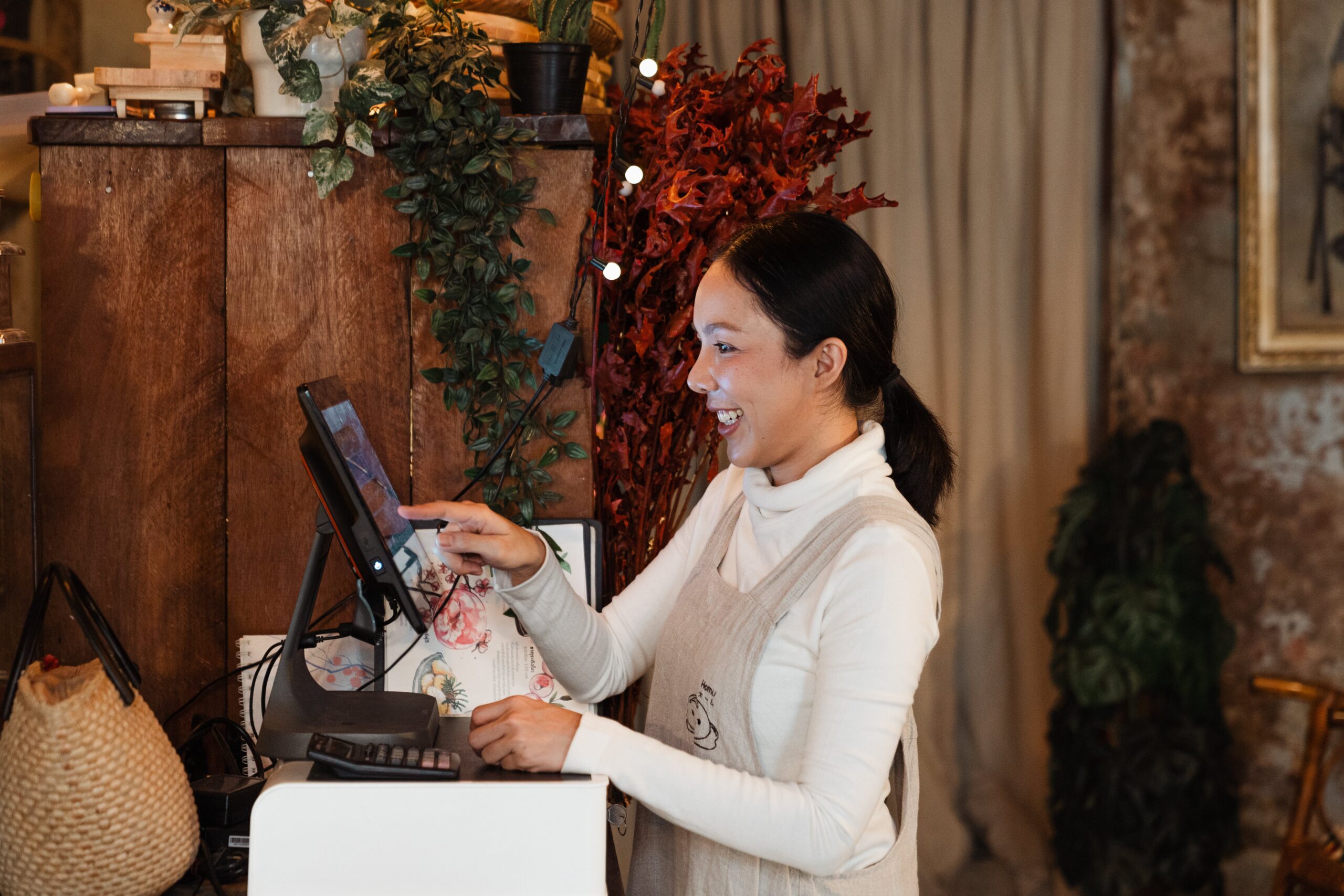On a rainy day in June, Londoners are heads down and the sea of black umbrellas are out in force. It’s not a day when one feels particularly inclined for community spirit. And yet, at the purpose-built Southwark Community Resource Centre a keen group of blind and partially sighted people were arriving for their weekly cooking and IT classes.
 Combatting isolation
Combatting isolation
The sessions are co-ordinated by BlindAid, one of GLFB’s key partners, who provide a range of community projects aimed at boosting independence and re-engaging participants with their local community. According to research by the Campaign to End Loneliness, sensory loss is one of the key risk factors leading to loneliness. When combined with wider societal issues, such as barriers to accessing transport and technology, it can result in a high prevalence of loneliness and isolation for blind and partially sighted people. A recent government report shows that lonely people are more likely to be readmitted to hospital or have a longer stay. There is also evidence that lonely people are more likely to visit a GP or A&E and more likely to enter local authority funded residential care. While everyone feels lonely from time to time, and this is part of being human, when people feel lonely most or all of the time, it can cause serious harm. The courses run by BlindAid provide opportunities for people to connect with others and learn a new skill.
Accessible technology
The facilities at the Southwark Community Resource Centre have been specially adapted – with big button keyboards and NVDA installed on PCs as standard (a free software programme that reads text out loud – NVDA stands for Non Visual Desktop Access). The IT session is led by Brooke who is teaching her group how to open an internet browser, search for facts about pomegranates and then copy and paste said facts into Microsoft Word. A simple task for those of us who have grown up with the internet at our fingertips, but the combination of sight loss and a largely google-light life to date, means this task can feel daunting for the group.
Networks and networking
Each participant is paired with a volunteer, also blind or partially sighted, who form part of the IT class alumni. Through gentle praise the volunteers passed on warm encouragement to the members of the group each time they conquered a task. The level of support was tactful, uncompromising and softly empowering. Brooke spoke of the benefits of the classes – the participants who had been able to go on to email relatives abroad for the first time independently, find meaningful work and of course the numerous example of participants who now volunteer to support others living with sight loss in our capital.
Cooking up a storm
Alongside the hi-tech suite another group are turning up the heat and learning to cook a hearty meal – this week, chilli con carne. For many people who experience sight loss cooking can become a daunting experience. Measuring out ingredients, handling knives and other equipment and managing cooking timings can all become a challenge. David, who had originally taken the course two year ago, was on hand as a volunteer helping the current intake of trainee cooks through the steps. He said he was keen to give something back to his local community by volunteering to support the cookery classes and talked about learning to cook steaks independently since joining the class.
Getting out, getting on
From the enthusiasm and dogged commitment of the participants its clear these sessions have had a huge impact on those taking part. While simply getting out the house and planning their travel had been a major achievement for some, making connections and new friends had been a massive bonus. Its projects like this that provide the stepping-stones to boosting confidence, reducing isolation and helping people understand what they can achieve.


